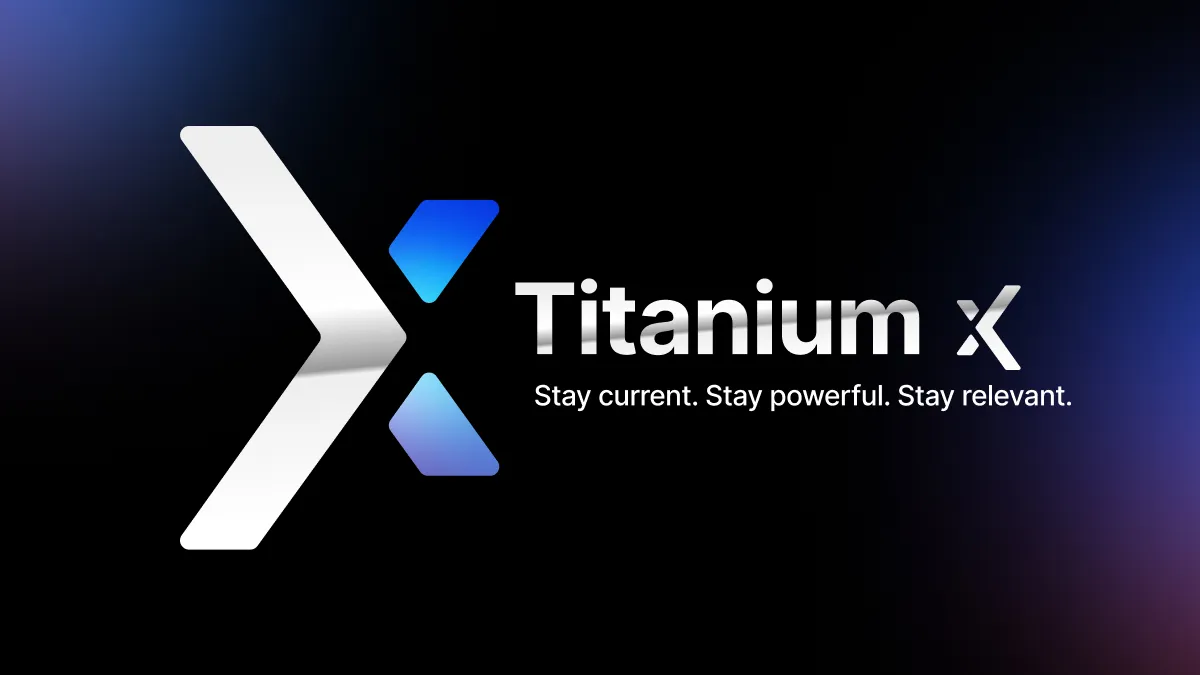Upgrade to OpenText Titanium X – why you should care
Blog: OpenText Blogs

Software upgrades. We all know about them, but how often do we actually stop to consider why they’re so important? For IT professionals, security professionals, and software developers, staying on top of upgrades isn’t just helpful—it’s essential.
Upgrades can be your secret weapon for better systems, stronger security, and seamless operations. Here’s how:
1. Security you can rely on
Picture this: you’re working with outdated software, and one major vulnerability gets exploited. Instant chaos. Keeping your software up to date helps you avoid this nightmare.
- Mitigation of vulnerabilities: Software upgrades ensure that known security flaws are patched, keeping attackers at bay. Still running on outdated code? Think of it as leaving your front door unlocked.
- Swift incident response: Newer versions help teams respond faster to security threats, whether it’s detecting breaches or mitigating damage. Updated tools, updated peace of mind.
If you’re in charge of guarding sensitive data, don’t sleep on upgrades—they’re your first layer of defense.
2. Top-tier performance
Do you enjoy sluggish software weighing you down? (Spoiler alert: you don’t.) That’s why performance improvement is one of the most immediate benefits of upgrading.
- Enhanced functionality: Upgraded software often comes packed with new features and refinements, making your job easier and your tools more effective.
- Optimized operations: Fewer bugs mean smoother operations—no more wasting your morning troubleshooting why your system suddenly decided to break.
When your software performs better, so do you. It’s as simple as that.
3. Keeping compatible and adopting innovation
Tech is evolving faster than ever, and outdated software makes you that one person still trying to use a flip phone (it’s not cute).
- System integration: Upgrades support better compatibility with your other tools, ensuring everything works in harmony.
- New standards and features: From optimizing automation to supporting industry-specific protocols, current software helps you stay ahead. Don’t just ride the wave—be the one creating it.
4. Compliance and technical debt factors
Nobody likes dealing with legal headaches or unnecessary expenses, and staying current with your software eliminates these risks.
- Regulatory requirements: By upgrading, you’re keeping up with industry regulations, safeguarding against hefty fines or penalties. Think data privacy or licensing compliance.
- Reducing technical debt: Regular updates simplify maintenance, prevent downtime, and reduce long-term costs. Your future self will thank you.
Wrapping it up
Software upgrades aren’t just chores you can push to next week’s to-do list—they’re a foundational piece of maintaining secure, efficient, and innovative workflows. Whether you’re securing your organization, streamlining performance, or meeting industry standards, keeping your software updated means you’re always one step ahead of the competition.
Want to transform how your team handles upgrades? Start adopting a proactive approach today—because the business world doesn’t wait for outdated systems.
Stay current. Stay powerful. Stay relevant.
- Check out Titanium X guided tours and demos
- Don’t get left behind. We make modernizing easy. Contact us to help plan your upgrade
- Need help upgrading? OpenText Professional Services can help
- Want to see more? Schedule a demo
The post Upgrade to OpenText Titanium X – why you should care appeared first on OpenText Blogs.
